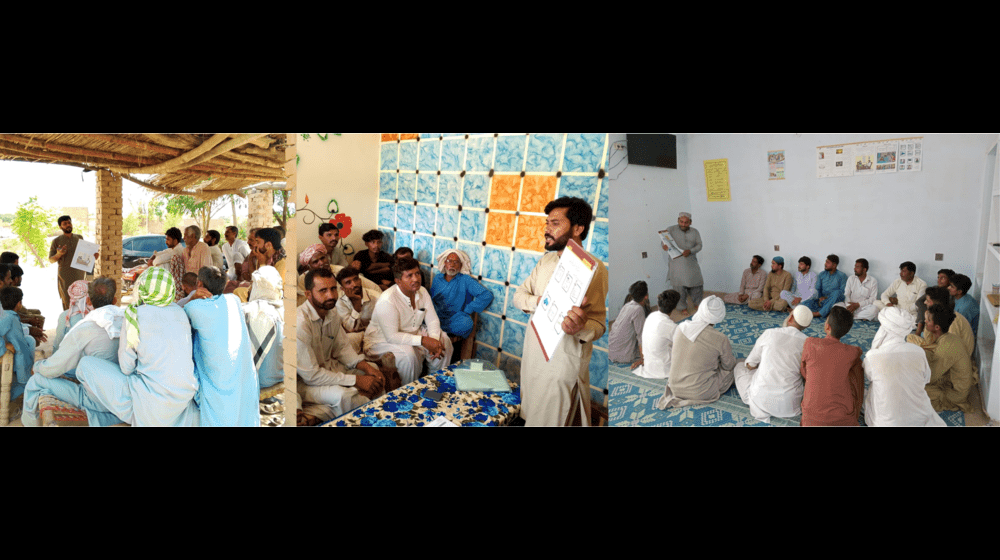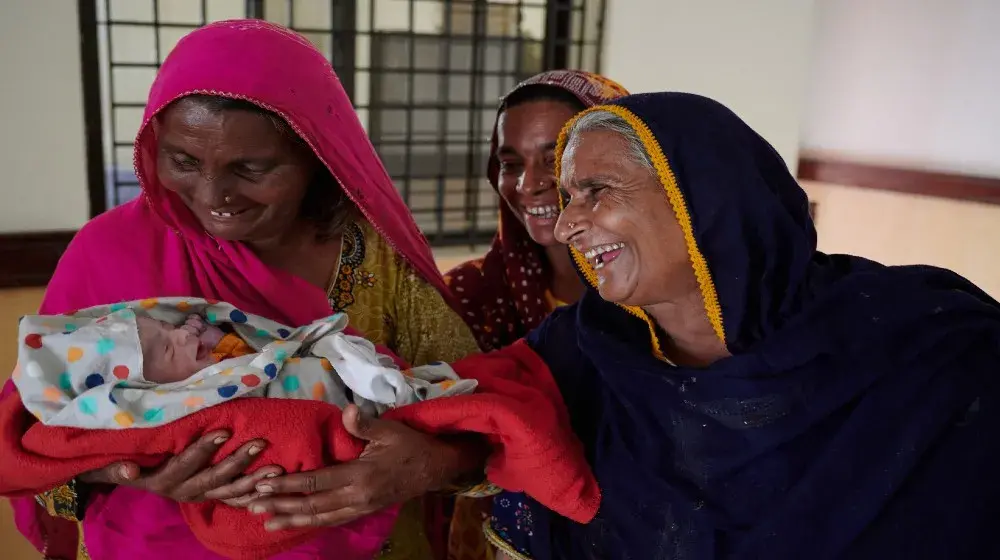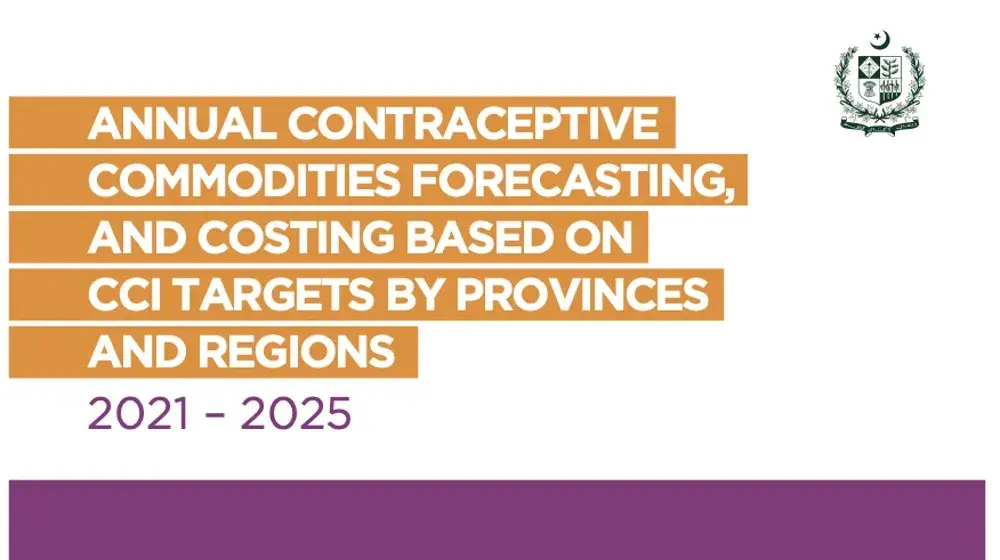In Pakistan, family planning and sexual and reproductive health (SRH) remain sensitive and often stigmatized topics, deeply influenced by religious beliefs, societal norms, and traditional values. Conversations around these issues are generally considered private, with many communities facing barriers such as limited access to education and healthcare services. In Pakistani culture, men traditionally hold a dominant role in making major family decisions, including those related to having children. This practice is tied to cultural expectations of masculinity and authority, where men are seen as the primary decision-makers and financial providers. Women's voices in such situations can be marginalized, especially in conservative households, limiting their agency in family planning and reproductive health.
However, The Sexual and Reproductive Health Agency (UNFPA) is ensuring the conversation encompasses the true family unit, by including the men whose role as husband and father can determine the health of the whole unit. UNFPA in collaboration with the implementing partner RSPN piloted the model of ‘Husband Schools', which are community outreach spaces for men to gather and talk about what it means to be a family. The Husband school has conversations around the importance of fatherhood, family planning, the importance of prenatal checkups and child immunization. This concept of the Husband school was initially piloted in Africa where the number of family planning clients tripled after this intervention.
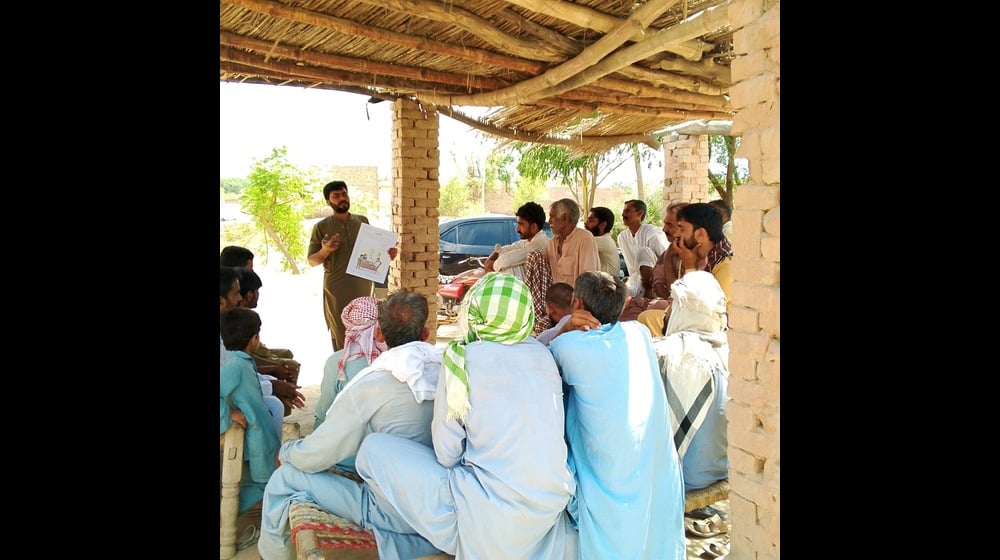
Considering the cultural diversity and the religious aspects linked to family planning, involving religious and civil society leaders was important for effectively reaching the community. Imam Masjids were engaged as a coach to discuss family planning, ensuring the initiative's smooth implementation. Field visits revealed an important insight that framing the conversation around the husband’s and father’s religious and cultural responsibilities made men take the topic more seriously. Initially, many dismissed family planning as not worth bothering, often laughing it off. However, when reminded of their culturally significant roles as heads of households and providers, they began to see the importance of considering how family planning impacts their families.
This previously unexplored approach resonated strongly within the community. Coaches noticed that men would later return, sometimes privately, to ask for more information on how they could positively influence their families. It was also found that in many cases, women were already using contraceptives without informing their husbands or felt too unequal to raise the topic, unsure of how it would be received in their conservative communities.
Zahid Khan, a farmer from Sadiqabad, Rahim Yar Khan, had never considered family planning. However, after hearing about the Husband School from a friend, he decided to attend a session. Inspired by what he learned, Zahid not only adopted family planning himself but also became an advocate, encouraging other villagers to spread the message.
"In our village, access to quality healthcare is very limited. We often avoid visiting good doctors or health facilities because it requires traveling to urban areas. Family planning is a topic rarely discussed, so I never gave it much thought. However, the Husband School encouraged me to talk about it with my family and explain that spacing between children is important for reducing maternal and infant mortality. There's no harm in practicing family planning."
Ms. Shafia Mirza is the Project Manager of Rural Support Program she believes that this initiative has the potential in reaching and engaging people with the right family planning options. They have a number of exciting stories from the field where they have recreated the husband school model.
"We have engaged members of RSPs fostered community institutions (CO/VOs/LSOs), religious leaders, and CBO, who work with husband school coaches and social mobilisers to further sensitize communities on the importance of birth spacing for mother and child health. We have an extensive tool kit from which we plan our activities and conversations on important topics like reproductive rights, importance of birth spacing and FP methods, role of husband, prenatal checkup, early breastfeeding and child immunization. At the end of each activity, participants who wish to receive FP services are given a referral slip and referred to a nearby public health facility for services" - Shafia Mirza
The Husband School served as a platform for discussion, decision-making, and action, bringing together married men, community health workers, local residents, and cultural and religious leaders to promote conversations about the importance of family planning. Under this pilot project, 132 Husband Schools were established across Muzaffarabad, Rahim Yar Khan, and Rawalpindi. A total of 10,405 awareness sessions were conducted, reaching 154,488 individuals, 70% of whom were men. Through these sessions, 30,964 clients were referred to public sector clinics for family planning services, and more than 70% of those who received referral slips went on to access these services.
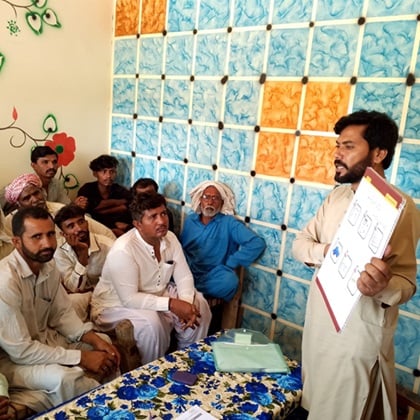
RSPN shared that during the implementation of this plan they have noticed the impact that men were proactively accompanying women to the health centers. The health centers have also been equipped with special desks for men, these counters or desks make it easier for men to get their questions answered from another mail healthcare worker rather than trying to surmount the culture barrier of talking to a lady health worker. While the project itself is over a year old and the ‘male counters or male desks’ have been implemented since May of this year. They have already shown a positive impact on the accessibility of service.
It is amazing how a little conversation goes a long way, while the adage
"Ultimately, the bond of all companionship, whether in marriage or friendship, is conversation" — Oscar Wilde
Is well known , it is often forgotten that community and society is built on these very conversational bonds.

